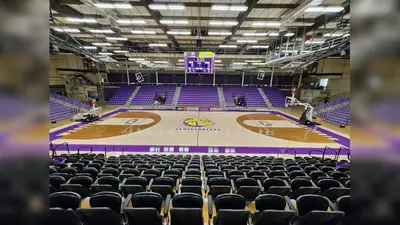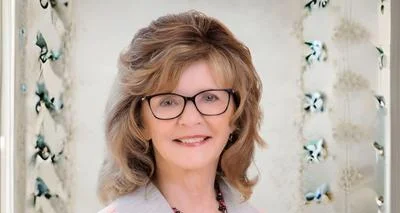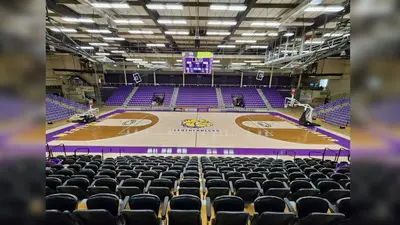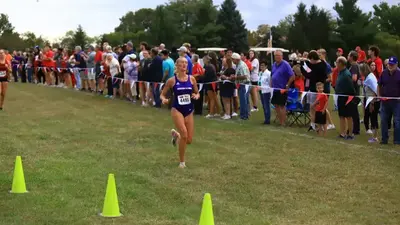Western Illinois University Board of Trustees met April 6.
Here is the minutes provided by the board:
The meeting of the Board of Trustees of Western Illinois University convened at 11:08 a.m. in the President’s Conference Room Sherman Hall 205 in Macomb. Chair Radosh presided.
Trustee Lang moved to convene to open session. Trustee Shaw seconded the motion.
Roll Call
Trustee Greg Aguilar Yes
Trustee Justin Brown Yes
Trustee Patrick Twomey Yes
Trustee Kisha Lang Yes
Trustee Carin Stutz Yes
Trustee Polly Radosh Yes
Trustee Doug Shaw Yes
Trustee Erik Dolieslager Yes
Motion carried.
ATTENDANCE
Several members attended remotely due to a March 16, 2020 temporary suspension of certain Open Meetings Act requirements by Governor Pritzker in light of the COVID-19 pandemic. The suspension states that,
• A Public body may convene a properly noticed meeting with any number of members physically present, or nomembers physically present, as long as the total participating members constitutes a quorum; and
• No specific reason or vote to allow for the remote participation is required.
Board Chair Polly Radosh (In Sherman 205)
Trustee Greg Aguilar (In QCC 3420A)
Trustee Justin Brown (Remote Attendance)
Trustee Erik Dolieslager (Remote Attendance)
Trustee Kisha Lang (Remote Attendance)
Trustee Doug Shaw (Remote Attendance)
Trustee Carin Stutz (Remote Attendance)
Trustee Patrick Twomey (Remote Attendance)
Also present for the open meeting of the Board of Trustees:
Interim President Martin Abraham (In Sherman 205)
Legal Counsel Liz Duvall (In Sherman 205)
Interim Board Treasurer and Associate Vice President for Budget and Finance Letisha Trepac (In Sherman 205)
Interim Provost and Academic Vice President William Clow (In Sherman 205)
Senior Vice President for Strategic Planning and Initiatives Joe Rives (In QCC 3420B)
PUBLIC COMMENTS
Tere North: 1. What decisions might Interim President Abraham need to make that could not be made remotely by the BOT? 2. Where does the search stand? 3. Would the Board consider offering more frequent meetings?
Jamari Brown: Has not been physically at WIU since March 6. Believes that he should be afforded a refund for dining and housing. Needs the funds to pay for next semester.
James Soto: Will WIU students receive some sort of refund or compensation?
Aliyah Gomez: Concern is receiving a refund for meal plan and housing during COVID-19 pandemic.
Diamond Jones: Requesting a permit of reimbursement for mandatory dining fees. The transition back to home from campus has been strenuous.
Sakima Walker: Students should receive a refund from the university despite this being nobody’s fault.
Jaylene White: Asked if she be receiving any type of refund or compensation for leaving campus and losing her job on campus?
Ruth Kelly: Appreciates the need to stay on top of the crisis facing the world. Addressed the need for the community of Macomb and WIU working together. Challenged the Board to reconsider the need to continue the search for a President. Has the search committee been appointed? Who are constituent members? Has a firm been contracted? How much will this cost? What is a timeline? Will a search be possible with social distancing? Urged the Board to reconsider the appointment of Dr. Abraham as the 12th President of WIU.
Hailie Meyer: Students should be allowed housing and dining refunds. Antavia Adams: Requested a meal plan and room refund.
Heavenly Hines: Students should receive refunds for housing and dining since they have not been on campus since spring break.
Ryan Burgess: Believes students should be refunded room and board since classes are online.
Shelby Davin: It is of utmost importance to consider student requests for refunds for room and board and other fees. Students are paying for things they cannot utilize (meal plans, health insurance, room charges, portions of tuition).
Cassandra Richards: Moving online in the face of the pandemic was unavoidable but it is of the utmost importance of WIU to help students during this governmental overload.
Pamela Stokes: Respectfully requests a refund for meal plans and prorated housing refunds.
Kassandra Aguirre: Any money that would be used for online instruction could be kept by WIU but believes any funds used for dining or residence halls should be refunded.
Sheanna Kirk: Students should be refunded for six weeks of meal plans and housing. COVID-19 has been a tragedy for all of us.
Bill Thompson: Everyone is working hard and doing their best for WIU. UPI and administration worked together to arrive at an agreement to transition to this new work environment. The delegation being considered today is appropriate but should include public reporting of the amount of refunded money and where it comes from. Thompson addressed how the change in advising radically violated the job descriptions of advisors’ contracts at 37.1. This reads: When plans are undertaken to reorganize the department/unit, all affected employees shall be notified of such plans and given an opportunity to respond prior to the reorganization. Advisors were not consulted about the reorganization of their department. Nor were advisors ever consulted as to whether this change was in the best interests of students and the institution.
Yasmin Laerna: Students should not be paying for in-person classes when they are not taking them and the school should refund students for the cost of classes.
Anthony Gomez: With cuts to student work hours he is requesting a refund for his room and dining plan that has not been used. Believes students should be reimbursed for the time they were forced to go online.
Ciara Wilkerson: Believes students should not have to pay for things that are not accessible to them, such as campus resources. The money can help families during the pandemic.
Alyssa Hall: Students should receive meal plan and room charges back. The graduation ceremony should be postponed until August 1st. Students still want to be ensured they have their money back and a Spring 2020 commencement.
CHAIRPERSON’S REMARKS
Chair Radosh addressed questions from the Public Comments. The first question was regarding the Presidential Search. The three heading the Presidential search (Radosh, Twomey, Pynes) have been meeting since December. RFP’s for search firms are out and five companies are on the state procurement list. Presentations from the firms were scheduled for the March meeting and that was cancelled. The most recent search committee list is posted on the Faculty Senate web page (http://www.wiu.edu/faculty_senate/committees/index.php ) except the community members. Bios of each community member have been sent to the Trustees on March 17 and at this point the search is in a holding pattern. Chair Radosh does not know where the search is at and states that the committee is unable to go forward due to the Stay-At-Home Order.
Several faculty members, two board members and community have requested that Interim President Abraham be appointed President. Dr. Abraham has requested that this not happen in an emergency situation and the Trustees will discuss it at a regular meeting at a later date and could reconsider their decision.
Trustee Twomey stated that he is impressed with all of the community members who were presented. Trustee Lang would like to move forward with the Presidential Search.
Discussion of adding an amendment to the Resolution will be had at that time.
Chair Radosh apologized for misunderstandings associated with the slated vote and the cancellation of the March 30 scheduled Board meeting. The intent of the Resolution was to improve the response agility of the Interim President who has been navigating through some very difficult decisions. There was no intent to abdicate Board responsibilities over personnel, expenditures, procurement or any other major decisions. We intended to transfer operation decision making temporarily to the Interim President. Our Resolution was nearly identical to that which was passed by the BOT at NIU. It was not long after the Resolution was posted that we realized that our intent and the interpretation of the language of the Resolution were at odds. We had prepared an amendment that specified the specific operational authority that we intended but the amendment needed more legal tweaking before we could move forward so the meeting was canceled. As I looked at the Resolution through the lens of our most recent history I realized why people were nervous. I apologize for not being more attentive to the intersection between purpose and perception. Our BOT regulations delegate much less authority to the President than most of our sister institutions. We require more active Board involvement in decision making than most. This would embolden shared governance but during an emergency it is problematic. At Illinois State University they delegate nearly all authority to its President. At WIU the Board approves tenure, promotion, contracts, personnel matters and many other components of governance. At ISU, after delineating the broad authority of the President, the Board regulations state, “The Board will exercise its authority through the President.” While our system is more inclusive and it invigorates the values of shared governance, it also means that our President is restrained and makes our response in a crisis less nimble than in universities where more authority is delegated to the President. This is not a call to change our system but an explanation of our situation.
The second problem we were trying to address is that our system contains no contingencies for emergencies. The Governor’s State regulations state: In the event of an emergency the President may grant an exception to Board approval. The regulations at Southern Illinois University is similar. To date the Interim President has kept the Board informed and is in regular contact with the Governor’s office and has had regularly scheduled meetings with Presidents of other institutions. Decisions up to this point have been responsible, transparent, timely and reasonable. Thank you to Dr. Abraham and the leadership team for all they have done to guide us through this time. The city of Macomb thanks WIU for its assistance with the Emergency Operations Center.
All Trustees are ready and willing to meet as often as necessary in this crisis. Rapidly changing circumstances may require a quick turn-around from the President.
GENERAL DISCUSSION AND ACTION ITEMS
Resolution 20.4/1: Resolution to authorize the Interim President to make decisions and take the necessary actions, with regard to refunding or crediting students mandatory fees and special fees for the Spring 2020 Semester
Chair Radosh read the Resolution as presented.
Discussion was held. Trustee Aguilar proposed an amendment that would include projections on revenue, refunds, enrollment as a result of COVID-19 so everyone knows where the university is with funds. Abraham said that there is no way to project enrollment during unprecedented times but numbers now are showing we are robust on enrollment because admits are up 14-15%. If this were a normal year I would say we would be up in enrollment. Industry projections show students may take a gap year and also that enrollment may be up as a result but we just cannot predict. We remain cautiously optimistic about enrollment.
Trustee Lang: What are the dollar amounts for scholarships that are going out with that enrollment?
Trepac: Scholarships from appropriated funds are up $1.3 million from $8 million in part due to Aim High reimbursement because we must match as an institution. Would need to get exact figures.
Trustee Dolieslager: We have had many comments from students and this is just the beginning of requests for refunds. What are the additional numbers/volume of communications from students requesting refunds?
Abraham: A relatively decent population of students have contacted the university but no exact number. Across the board students are requesting refunds for room and board.
Trustee Brown: Many students feel this is necessary especially since they are out of a job and are not able to be on campus.
Aguilar: Will we be able to see projections for revenues and expenses from now until the end of this pandemic should it go to the end of April, May, to the end of the year?
Trepac: We have been tracking our expenses and other institutions. If we project until the end of this FY we are projecting $5-6M and possibly add in a couple more million for contingencies. Many models are being run to determine if enrollment increases, goes down, X-percent vs same level, etc.
Aguilar: So you are running scenarios that change potential enrollment issues, say if enrollment increasing, decreasing?
Trepac: I can run scenarios if enrollment, say is 10% down. It’s not exact just a projection. Refunds from the system are from AFS not appropriated.
Aguilar: Do you have a number if this goes until December?
Trepac: I do not have one number in particular for you. There are many different variables (online, enrollment, housing) and it’s not one easy answer.
Aguilar: What are some things that you will be looking at that can affect our bottom line?
Abraham: We do not know what our appropriation will be from the state and that will influence budgets.
Trepac: The timing of the cash payments from the state also impact our need to react quickly.
Aguilar: What are the three things that would affect our budget if this goes to December?
Abraham: The three things that influence our budget are: 1. Appropriation 2. Enrollment 3. Room and Board
Stutz: For the purposes of this meeting aren’t we just considering this school year’s refunds and not to go into next year?
Abraham: That is correct, the authority would only be through the next Board Meeting. Stutz: What are other presidents around the state doing?
Abraham: Most have not publicly stated what they are doing, but overall the sentiment is that tuition refunds are not being given but room and board and discussions are being held on where everyone will be at on if other fees would be refunded. Lang: Where would the funds come from?
Abraham: Auxiliary Funds would be where the refunds would come from which is the same place the fees are paid into.
Twomey: How are we keeping track of identified expenses related to the pandemic? It is my understanding that a good deal of these expenses would be refundable under the package passed by Congress.
Abraham: Letisha is keeping track of directly related expenses so that we know what we have available to expend and what our real costs are. The rules have not yet been written, but The CARES Act was recently passed and based on analyses by others we expect to get about $8.5M. Half of that will be expended directly to students and I am seeking clarification on that.
Twomey: By bringing that up I wanted to make sure my colleagues have heard that we have a mechanism to recoup a good number of these dollars.
Stutz: From the business side many expenses will be forgiven and some would be paid back within two years with a small interest rate. What is the university facing, is it different than business?
Abraham: There is a one-time cash reimbursement after we validate expenses. Looking for relief for Sick leave and FMLA use because public universities are ineligible for this. We are looking to see if we can get eligibility for the next stimulus component. We are working with our sister institutions to make sure the legislators understand.
Stutz: What will the process for the refund look like?
Abraham: We have not finalized it yet, but we would expect that there would be some sort of credit to the students in their account. Manual calculations are required and as soon as permission is granted to process refunds we will begin doing so.
Dolieslager: I look at housing contracts because that is what means they are coming. Things are looking very solid for that number and we have all contributed to this. In light of the circumstances surrounding COVID-19, we need to have freedom within a framework and need to be nimble enough to make decisions. As we are receiving detail from students and requests for refunds we need a tracking measure to determine what it looks like on a weekly basis for refunds and enrollment.
Chair Radosh: Is there an amendment to include a tracking or an accounting?
Aguilar: I would like to move to add an amendment that we include tracking and communication with the Board so we can keep a close eye on finances.
Duvall: I would point out there is a sentence included that states, “the Interim President will keep the Board of Trustees informed as decisions are made and executed.” If you want more than that you should have another special meeting to approve the plan but I don’t think that is the intent of the Board members. If you want him to run everything by you first then this Resolution does not make sense.
Aguilar: So the resolution states that the Interim President will be in touch with all Board members on decisions that have to be made financially?
Duvall: Yes, it says that he will keep you informed as decisionos are made and executed, which I believe he will do most likely by email so that all of the Trustees are hearing the same information at the same time.
Abraham: When we have an announcement that is forthcoming that is substantial, we try to get the information out in advance and in a timely manner.
Aguilar: I appreciate that and withdraw my amendment.
Chair Radosh: The only other thing is we make it public eventually.
Twomey: Many people are questioning giving Abraham the authority you want to give to him. The local school board has given me more broad freedom than is being given to Abraham. It’s critical in times like these and that we have the trust in the leadership that they will make the decisions on the behalf of the students. There are many things that the public does not see. Western is on the forefront of the McDonough County Emergency Management command center. We need to do as much as possible not to tie his hands.
Aguilar: I completely understand and we are all in this together, and I want to go on record to say the last resolution did not set well with me and it was unexpected and that is not how we lead at Western. We must work well with each other.
Trustee Stutz moved to approve Resolution 20.4/1. Trustee Brown seconded the motion.
Roll Call
Trustee Polly Radosh Yes
Trustee Doug Shaw Yes
Trustee Greg Aguilar Yes
Trustee Justin Brown Yes
Trustee Erik Dolieslager Yes
Trustee Kisha Lang Yes
Trustee Carin Stutz Yes
Trustee Patrick Twomey Yes
Motion carried.
Resolution No. 20.4/2: FY2021 Student Health Insurance Fee Recommendation
Chair Radosh read the Resolution as presented.
Dr. Abraham gave background and clarification that all students are required to carry the insurance but are able to opt out if they have other coverage. The rate will remain the same but incorporates additional benefits and lower deductibles. It is a richer plan at the same price and we are excited to bring this forward to students and to help them out.
Duvall: For those who cannot see it, the fee is $795 per half year or $1590 per full year. Trustee Twomey moved to approve Resolution 20.4/2. Trustee Brown seconded the motion.
Roll Call
Trustee Patrick Twomey Yes
Trustee Carin Stutz Yes
Trustee Kisha Lang Yes
Trustee Erik Dolieslager Yes
Trustee Justin Brown Yes
Trustee Greg Aguilar Yes
Trustee Doug Shaw Yes
Trustee Polly Radosh Yes
Motion carried.
NEXT MEETING
Trustee Shaw asked if there was any work that could be brought forward online for the Presidential Search, such as presentations from the search firms prior to the June meeting. Chair Radosh said it was scheduled until the Stay-At-Home Order was mandated. We decided to leave it until the order was lifted initially on April 7 and since it was extended. As soon as the order is lifted we could have remote presentations.
Lang: What does that mean “As soon as we’re able?”
Radosh: We are in a Stay-At-Home Order so we shouldn’t be pulling University resources in to set up Zoom meetings or anything like that. We have to wait until the order is lifted. As soon as it’s lifted we could resume.
Aguilar asked if there should be another meeting in five weeks, prior to the June meeting due to the changing situation daily and since we are in the middle of a Presidential Search. Chair Radosh said that there was discussion of holding the March meeting sooner than June.
Trustee Shaw said he is willing to meet whenever and will make himself available in the evenings or day time.
Trustee Twomey encouraged everyone to stay in and stay safe.
Trustee Stutz commended leadership on all they have done during this time.
ADJOURN ACTION
Trustee Twomey made a motion to adjourn the meeting of the Board at 12:18 p.m., seconded by Trustee Shaw.
A voice vote was taken and the motion carried.
http://www.wiu.edu/board_of_trustees/minutes/April%206%20Meeting%20Minutes.pdf






 Alerts Sign-up
Alerts Sign-up